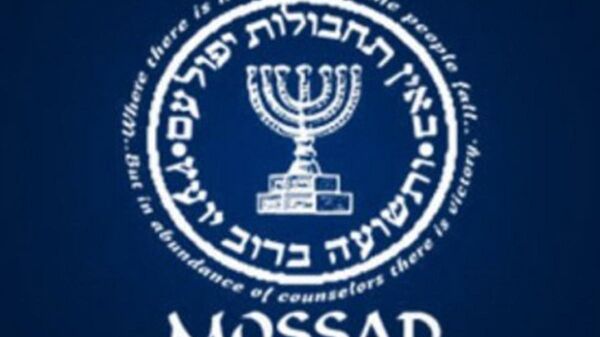A week ago, Israel's intelligence agency, the Mossad, transferred information to its counterparts in Denmark, exposing a cell of militants who planned to carry out a series of deadly terror attacks on Danish soil.
Two Separate Worlds
Danny Yatom, who headed the Mossad in the late 1990s, says Israel clearly differentiates between political and security concerns.
"We don't punish a country due to the fact that it imposes some restrictions over Israeli products in Judea and Samaria, for example," he said referring to the decision made by EU's Higher Court of Justice that guided the 28-member bloc to label products originating in the Golan Heights and the West Bank, which are considered occupied Palestinian territories under the international law.
"When it comes to issues of security or when it comes to saving human lives, the Mossad cooperates with foreign governments regardless of their political attitudes towards Israel".
They have done so in the past on a number of occasions. According to reports, intelligence provided by the Israeli spy agency helped thwart some 50 attacks over the last three years in 20 countries, including Italy, Germany, Denmark and even Turkey, relations with which continue to remain sour.
The Israeli Mossad is known for its most daring operations. These include the capture of the Nazi war criminal Adolf Eichmann, who was kidnapped in Argentina in 1960 and brought to Israel to face justice. Mossad operatives also assassinated Palestinian militants from the terrorist group Black September, who were responsible for the murder of 11 Israeli athletes at the Munich Olympics in 1972.
"In order to find out sensitive information that's highly guarded by our enemies, we often need to penetrate into the heart of terror organisations," said the former spy.
Mission - Defend the Motherland
But when they do so, the main goal is to protect Israel.
"While collecting the intel, we come across sensitive information that has nothing to do with Israel but that reveals plots of terrorists against civilian targets in other countries. That's when we pass the information on to the relevant bodies in Europe or elsewhere."
But they also have other interests. One of these is the hope that Mossad's help will be reciprocated, that Europeans will share their own intel regarding potential attacks against Jewish and Israeli targets; the other is the hope that one day their efforts will pay off with Europe changing its attitude towards Israel.
However, it doesn't seem to help, as Israel's reputation has suffered over the years, according to Yatom. In 2003, for example, a study that surveyed 7,500 people in 15 EU countries found that Europeans considered Israel as a bigger threat to the world stability than Iran, the North Korea and the US.
Another survey, in 2014, found that most people in Asia, Europe and South America had a mainly negative perception of Israel.
Yatom explains taht it's probably due to Israel's expansion policy in the West Bank.
Between 1967 and 2017 Israel established more than 200 settlements in the West Bank. Today the area is home to more than two million people, only a quarter of whom are Jewish.
"Israel is perceived as a conquerer that oppresses other people. As such, it makes the political relations with other states more difficult, as they feel free to attack us on the international arena."
In January the EU plans to discuss the Israeli-Palestinian conflict on the level of its foreign ministers and is slated to vote on the recognition of the state of Palestine. Similarly, in late January, the UN Human Rights Council is set to release its black list of 206 organisations and businesses operating in the West Bank, a move that will harm their image and, consequently, their sales.
Since Israel captured the West Bank from Jordan in 1967, the territories have been disputed, with the international community refusing to recognise Israel's claim to the area.



